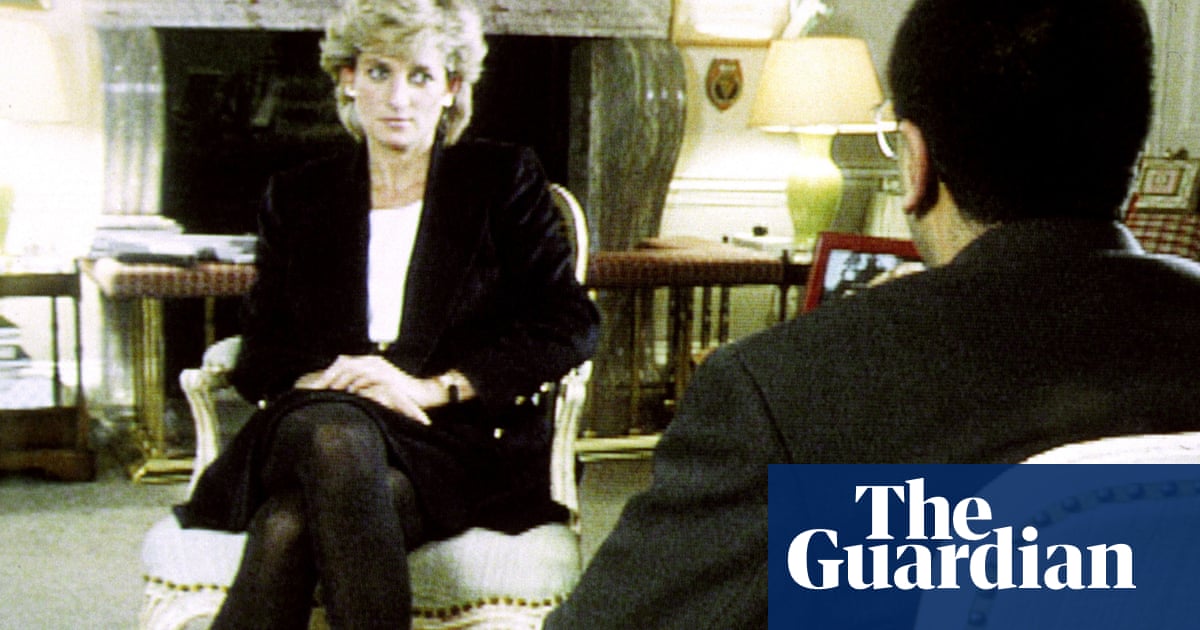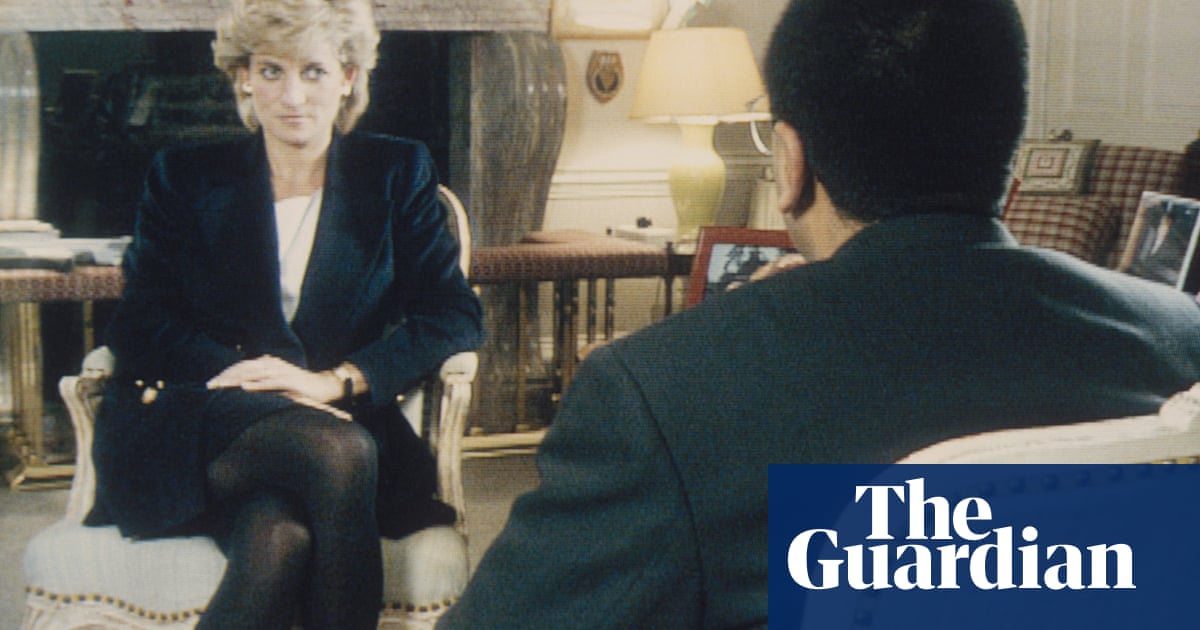
It was one of the most controversial and shattering TV programmes the BBC has ever broadcast. And early next month, the corporation is to return – in a Panorama special – to its 1995 interview with Princess Diana by the then little-known Martin Bashir.
This time, however, the spotlight will be turned on the programme itself and whether it was set up fairly and honourably – and, when a few months later it was shown that some falsehoods had been used to obtain the interview, whether the BBC failed in its own internal inquiry.
The story of the Diana interview will also be the subject of a new stage play, The Outsider, penned by a former TV journalist who worked closely with Bashir.
The Panorama special, presented by the award-winning John Ware, is believed to include an interview with Earl Spencer, who introduced Bashir to his sister. It will be broadcast before Lord Dyson, a former master of the rolls, delivers his own report into the Diana programme. His inquiry has asked whether steps taken by Bashir and the BBC to gain the original Panorama interview were appropriate; what knowledge the corporation had of mocked-up bank statements, which Bashir asked a graphics designer, Matt Wiessler, to fabricate; smears about royals that may have led Diana to talk; and whether there was a subsequent cover-up by the corporation.
Apparently, Dyson is not unhappy with the timing of the programme, while Tim Davie, the new director general, regards it as a cleansing of the stables. In 1995, Davie was working for PepsiCo and so had no connection with the controversial programme. It was he who gave the final all-clear for May’s Panorama.
To have stopped the investigation by Ware could also have been regarded as censorship.
It is expected that both Ware and Dyson will strongly criticise Bashir, in particular for misleading Diana and her brother. They will also blame the BBC news management at the time for not properly investigating how the interview was set up.
“When he first joined Panorama, Bashir came over as a very pleasant young man, if a bit oleaginous,” says Tom Mangold, then a senior reporter on the programme. “When we learned he had got the interview, there was no jealousy among us older reporters. In fact, his coup made us feel three feet taller.”
However, it was not known that Bashir had asked Wiessler to mock up bank statements that gave the impression people close to the Spencer family were selling stories to newspapers.
Before the interview was agreed, Spencer had apparently taken notes from conversations with Bashir of extraordinary claims about an abortion for William and Harry’s former nanny Tiggy Legge-Bourke, and other gossip about the Queen, Charles, Edward and Camilla. However Bashir, who is the BBC’s religious affairs editor but has been on sick leave for six months, is believed to have given evidence to Dyson that these bizarre claims initially came from Diana, and not from him.
Whatever their origins, such erroneous and damaging insinuations may have prompted Diana to agree to the interview, along with her fears of being spied upon. But any claims of coercion will now be countered by the BBC, which has recently found a “lost” handwritten letter from Diana that says she was not pushed into the interview by Bashir. This has now been handed to Dyson.
Ware’s Panorama will look into other alleged tactics of Bashir. These include that, while working for ITV’s current affairs programme Tonight after he left the corporation in 1999, he made very derogatory remarks to his contacts about BBC reporters working on their own programmes about the mass murderer Harold Shipman and the Soho nail-bomber David Copeland.
Peter Horrocks, head of BBC current affairs in 2000, wrote at the time to Bashir’s ITV boss complaining that “Martin had crossed the line professionally”. But Horrocks never received a reply.
The role of Tony Hall, director of BBC news and current affairs in the mid- and late 1990s, is also under scrutiny by Ware and Dyson. Hall exonerated Bashir without ever talking to Wiessler about his concerns. Hall subsequently became director general of the BBC in 2013 until retiring last year.
The play about Bashir and his interview, The Outsider, is by Jonathan Maitland, who previously wrote the highly praised Dead Sheep, which looked at the career of Geoffrey Howe, one-time deputy prime minister under Margaret Thatcher, and An Audience with Jimmy Savile, with Alistair McGowan as Savile.
“It’s a character study of Bashir, his motive for trying to get the interview, and how he landed it,” says Maitland, who, from 1999 to 2003, worked with Bashir on Tonight. Bashir was later forced to quit as a major TV interviewer in the United States after offensive remarks about the former vice-presidential candidate Sarah Palin.
Maitland adds: “The Outsider will also explore how power works, and who was manipulating who when the interview was being explored and then done. It’s not my job to bury Bashir but he did push the boat out further than other journalists.”
The play’s five characters will be Bashir, Diana, her personal assistant and confidant Paul Burrell, a composite of Diana’s closest friends, and Steve Hewlett, editor of Panorama in 1995 when the interview was set up and broadcast. Hewlett died in 2017.
Ware did not reply to requests to comment on the forthcoming Panorama, while the Dyson inquiry will say nothing until its report is published.












